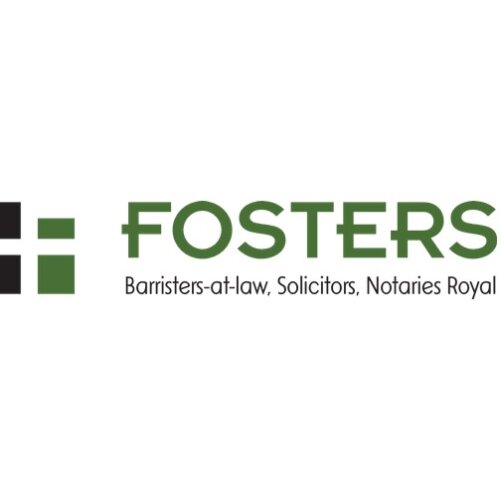Best Energy Regulatory Law Lawyers in Castries
Share your needs with us, get contacted by law firms.
Free. Takes 2 min.
List of the best lawyers in Castries, Saint Lucia
About Energy Regulatory Law in Castries, Saint Lucia
Energy Regulatory Law in Castries, Saint Lucia refers to the legal framework that governs the generation, distribution, and consumption of energy in the island nation’s capital and broader jurisdiction. The focus is primarily on regulating electricity supply, the use of renewable and non-renewable resources, licensing of energy providers, consumer rights, and adherence to national and international standards. As Saint Lucia expands its renewable energy capacity and addresses sustainability goals, the local regulatory landscape is evolving. The law is shaped by a combination of statutes, regulations issued by government bodies, and policies intended to balance public interest, economic growth, and environmental protection.
Why You May Need a Lawyer
There are numerous situations where individuals or businesses may need legal assistance with Energy Regulatory Law in Castries:
- Seeking a license or permit for energy production, transmission, or distribution
- Entering into contracts for the sale or purchase of electricity or fuel
- Dealing with disputes involving utility companies, especially over billing, access, or service interruptions
- Navigating compliance requirements for renewable energy projects such as solar or wind installations
- Understanding tariffs, rates, and government subsidies applicable to energy usage
- Engaging in government procurement or public-private partnerships in the energy sector
- Addressing environmental impacts or obtaining approvals for new energy developments
- Challenging regulatory decisions or penalties imposed by authorities
Given the technical nature and regulatory complexity in this field, legal advice is crucial for protecting your interests and ensuring compliance with all local laws and regulations.
Local Laws Overview
In Castries, Saint Lucia, the key legislation related to Energy Regulatory Law includes the Electricity Supply Act and related regulations, which outline the responsibilities of energy providers and the rights of consumers. The country has committed to energy diversification and sustainability, which is reflected in evolving rules for renewable energy projects. The Saint Lucia Electricity Services Limited (LUCELEC) is the main utility company, subject to regulatory oversight. The National Utilities Regulatory Commission (NURC) is the chief governmental body responsible for licensing, monitoring, and enforcing energy regulations. Policies exist to encourage investment in renewable energy, protect consumers against unfair practices, and enforce safety and environmental standards in energy operations.
Some recent developments include frameworks for net metering, guidelines for distributed energy resources, and incentives for both individuals and businesses to adopt solar energy solutions. Understanding these rules is essential for anyone involved in the energy sector or planning related ventures.
Frequently Asked Questions
What is the role of the National Utilities Regulatory Commission (NURC)?
The NURC is responsible for overseeing and regulating the electricity sector, ensuring that companies comply with relevant laws and that consumers are protected from unfair practices.
Who regulates electricity tariffs in Castries, Saint Lucia?
Electricity rates are set under the supervision of the NURC, which seeks to balance provider sustainability with consumer affordability and transparency.
Can private individuals or businesses generate their own electricity?
Yes, but such projects often require permits or approval from regulators, especially if the electricity will be fed back into the national grid. Regulations exist for distributed and rooftop solar systems.
What should I do if I have a billing dispute with LUCELEC?
First, address the issue directly with LUCELEC. If it is not resolved, you can escalate your complaint to the NURC, which has procedures for resolving consumer disputes.
Are there incentives for renewable energy installations?
Certain government programs offer incentives and streamlined approvals for solar and other renewable energy systems. These change over time, so legal advice can help maximize your benefits.
Do energy projects require environmental approval?
Yes, major energy projects often require environmental impact assessments and related approvals from regulatory authorities, particularly for large or potentially disruptive installations.
Is net metering allowed in Saint Lucia?
Yes, Saint Lucia has implemented net metering rules, allowing consumers to offset their electricity bills by feeding surplus power from renewable sources back into the grid.
How are energy service providers licensed?
Licenses and permits are issued by the appropriate governmental agencies, primarily the NURC, following application reviews to ensure technical and financial capability.
What legal protections exist for energy consumers?
Consumers are protected against unfair billing, unsafe supply, and abrupt service interruptions. Regulations require transparent pricing, fair access, and remedies for service complaints.
Can foreign companies operate energy businesses in Saint Lucia?
Foreign investment is permitted, but companies must comply with local registration, licensing, and regulatory standards, including environment and safety requirements.
Additional Resources
If you need further information or assistance regarding Energy Regulatory Law in Castries, Saint Lucia, consider reaching out to the following:
- National Utilities Regulatory Commission (NURC), the primary regulatory authority for public utilities
- Saint Lucia Electricity Services Limited (LUCELEC), the main electric utility provider
- Ministry of Infrastructure, Ports, Transport, Physical Development and Urban Renewal, responsible for national energy policy
- Trade and Export Promotion Agency, for guidance on doing business in the energy sector
- Environmental agencies for information on compliance with environmental standards in energy development
- Local attorneys specializing in energy or regulatory law for personalized legal counsel
Next Steps
If you are involved in an energy-related matter or considering an energy project in Castries, Saint Lucia, it is essential to determine your specific legal needs. Start by gathering all relevant documents and details about your project or issue. Contact a qualified local attorney with experience in energy regulatory matters. They can review your situation, explain your rights and obligations, and represent you before regulatory bodies if necessary. Consider reaching out to the NURC or other regulatory agencies to understand application procedures or complaint processes. Seeking specialized legal advice early in your process will help you avoid pitfalls, ensure compliance, and protect your interests as the regulatory landscape evolves.
Lawzana helps you find the best lawyers and law firms in Castries through a curated and pre-screened list of qualified legal professionals. Our platform offers rankings and detailed profiles of attorneys and law firms, allowing you to compare based on practice areas, including Energy Regulatory Law, experience, and client feedback.
Each profile includes a description of the firm's areas of practice, client reviews, team members and partners, year of establishment, spoken languages, office locations, contact information, social media presence, and any published articles or resources. Most firms on our platform speak English and are experienced in both local and international legal matters.
Get a quote from top-rated law firms in Castries, Saint Lucia — quickly, securely, and without unnecessary hassle.
Disclaimer:
The information provided on this page is for general informational purposes only and does not constitute legal advice. While we strive to ensure the accuracy and relevance of the content, legal information may change over time, and interpretations of the law can vary. You should always consult with a qualified legal professional for advice specific to your situation.
We disclaim all liability for actions taken or not taken based on the content of this page. If you believe any information is incorrect or outdated, please contact us, and we will review and update it where appropriate.










